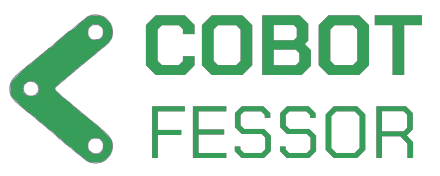Reshaping the Labour Market: The Impact of Cobots
Automation has always been a driving force in the labor market, impacting job roles, skill requirements, and productivity. While traditional industrial robots had their place, the emergence of collaborative robots, or cobots, is bringing a new dimension to how we think about work and the workforce. In this blog, we will explore how cobots are reshaping the labor market and what this means for businesses and employees.
From Automation to Collaboration
Enhanced Productivity
Cobots are designed to work alongside humans, not replace them. By assisting with repetitive, physically demanding, or mundane tasks, they help employees become more efficient and productive. This collaboration allows human workers to focus on more creative and value-added aspects of their jobs.
Job Augmentation, Not Replacement
Cobots are not intended to replace human workers. Instead, they augment their abilities. They can handle tasks that are dangerous, monotonous, or require precision, freeing up human workers to engage in problem-solving, decision-making, and more complex activities.
Reimagining Job Roles
The introduction of cobots often requires organizations to reimagine job roles and responsibilities. Employees may need to be upskilled to work effectively alongside cobots, with a shift towards supervising, programming, and maintaining these robots.
Impact on Industries
Manufacturing
In manufacturing, cobots are streamlining production lines, ensuring consistent quality, and enhancing efficiency. Workers collaborate with cobots to complete tasks more quickly, and the need for extensive safety barriers is reduced.
Healthcare
In healthcare, cobots are aiding medical professionals in surgeries and patient care. They can handle repetitive tasks with precision, allowing medical personnel to focus on critical decision-making and patient interactions.
Logistics
Cobots are revolutionizing logistics and warehousing by automating order fulfillment and packaging processes. This reduces the physical strain on workers and accelerates order processing.
Skills for the Future
Cobots are driving the demand for a new set of skills. Employees need to be proficient in cobot programming, maintenance, and supervision. These skills are increasingly valuable in the labor market, as businesses seek individuals who can bridge the gap between human workers and automation technology.
The Cobots Revolution
Cobots are not just machines; they represent a paradigm shift in how we approach work and automation. They are transforming job roles, making work safer, and boosting overall productivity. This revolution has significant implications for the labor market:
Increased Collaboration: Cobots create a more collaborative work environment, where humans and robots work together, making the best use of their respective strengths.
Enhanced Safety: Cobots reduce the risk of injuries associated with repetitive or hazardous tasks, contributing to improved workplace safety.
Upskilling Opportunities: As cobots become more prevalent, there is a growing need for individuals to acquire skills related to robot programming, maintenance, and supervision.
Conclusion
Cobots are not about replacing humans but enhancing their capabilities. They are reshaping the labor market by creating opportunities for increased efficiency, safety, and the development of new skills. This transformation underscores the importance of embracing technology to adapt to the changing nature of work in the 21st century. As businesses and employees embrace this new era of collaboration, they will be better positioned to thrive in the evolving world of work.
